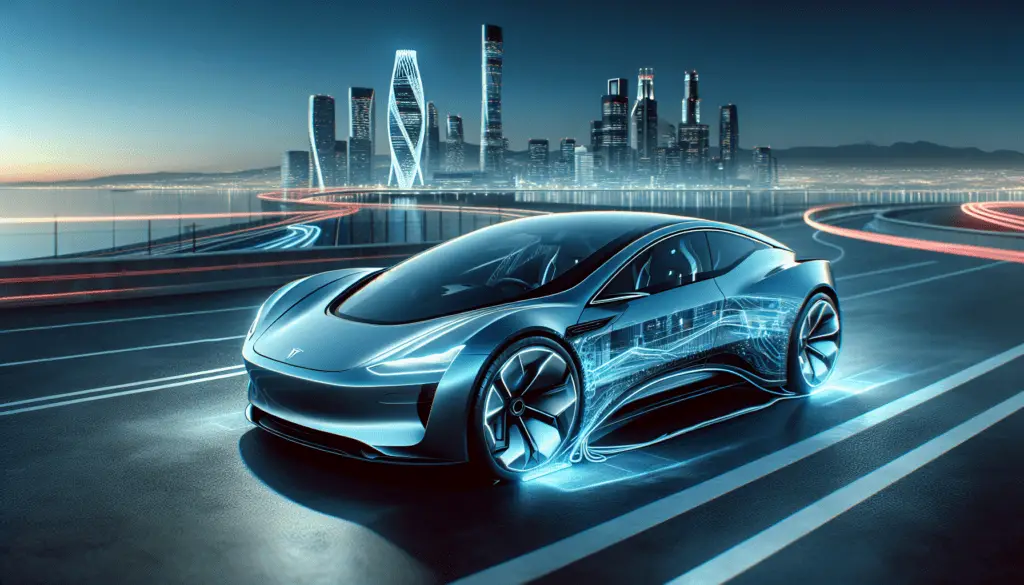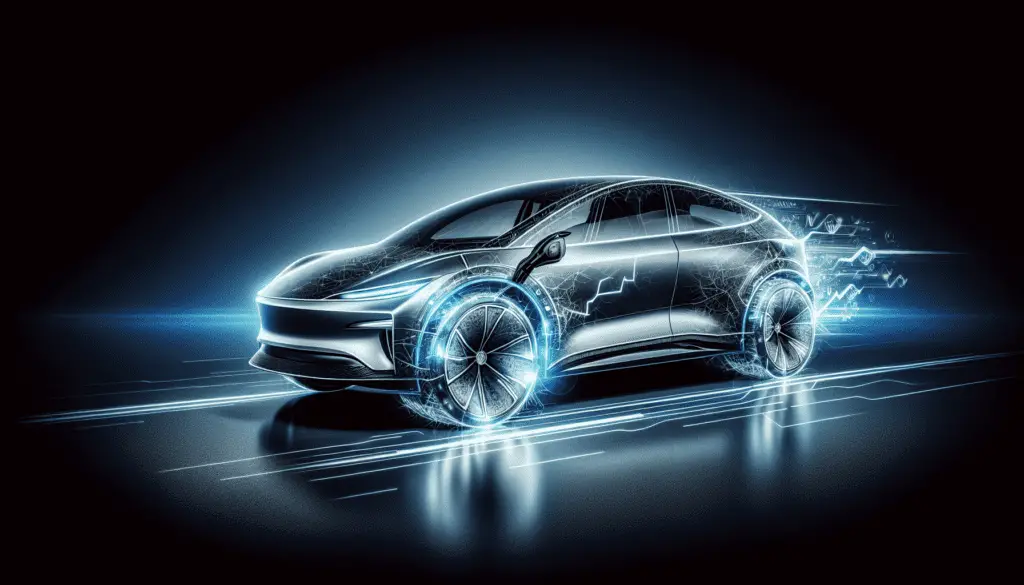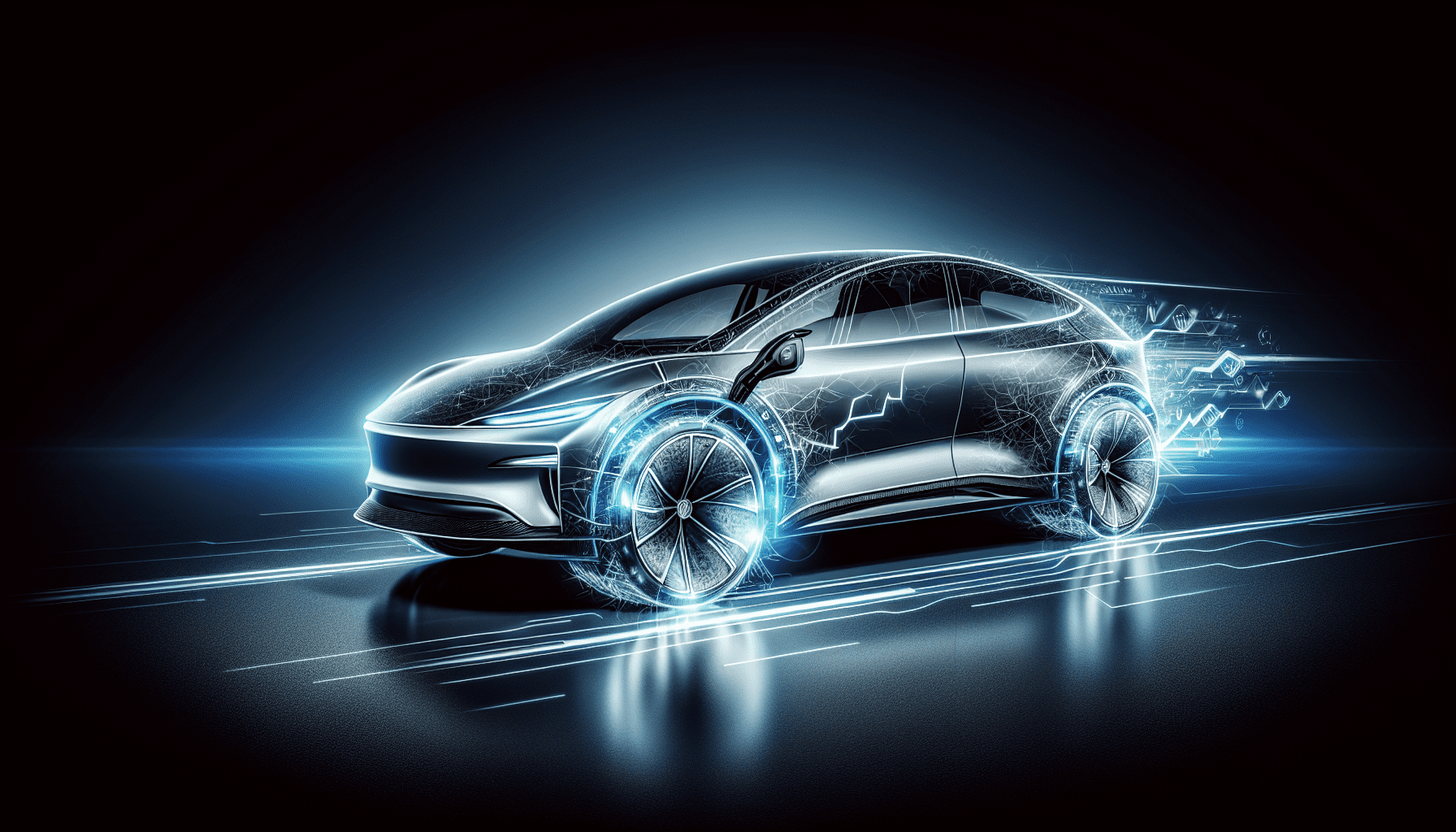Are you still hesitant about buying a Ford electric vehicle? Don’t worry, we’ve got you covered! In this article, we will debunk the most common myths surrounding Ford electric vehicles, so you can make an informed decision. From concerns about range anxiety to the cost of ownership, we will address these misconceptions head-on and provide you with the facts you need to know. Get ready to separate fact from fiction and discover the truth about Ford electric vehicles!
Myth: Ford electric vehicles have short driving ranges
Subheading 1: Understanding the driving range of Ford electric vehicles
When it comes to electric vehicles, one of the most common myths is that Ford models have short driving ranges. However, this couldn’t be further from the truth. Ford has made significant advancements in battery technology, allowing their electric vehicles to achieve impressive driving ranges. The driving range of an electric vehicle refers to the distance it can travel on a single charge before needing to be recharged.
Subheading 2: Advancements in battery technology and driving range improvements
Ford has been at the forefront of battery technology advancements, constantly improving the driving range of their electric vehicles. With each new model release, Ford continues to push the boundaries of what is possible for electric vehicle driving ranges. Through years of research and development, Ford has increased its battery capacity and efficiency, resulting in even longer driving ranges.
Subheading 3: Examples of Ford electric vehicles with impressive driving ranges
To dispel the myth of short driving ranges, let’s take a closer look at some of Ford’s electric vehicles that offer impressive driving ranges. The Ford Mustang Mach-E, for example, boasts a range of up to 305 miles on a single charge. This means you can confidently take longer trips without worrying about running out of power. Similarly, the Ford F-150 Lightning, an all-electric version of the iconic truck, offers a range of up to 300 miles, making it a reliable and practical choice for both work and everyday use.
Myth: Charging an electric vehicle is inconvenient and time-consuming
Subheading 1: Introduction to Ford’s charging network and availability of charging stations
Another myth surrounding electric vehicles, including Ford models, is that charging them is inconvenient and time-consuming. Ford understands the importance of providing a seamless charging experience for its customers, which is why they have invested in building a comprehensive charging network. Ford’s charging network includes thousands of charging stations across the country, making it easy for you to find a charging station wherever you go.
Subheading 2: Ford’s investment in fast-charging technology for quicker charging times
To address concerns about charging times, Ford has also made significant investments in fast-charging technology. With fast-charging capabilities, Ford electric vehicles can be charged up to 80% within just a matter of minutes. This allows you to minimize downtime and get back on the road quickly, just like refueling a traditional gasoline vehicle.
Subheading 3: Ford’s mobile charger and home charging options for convenience
In addition to the extensive charging network, Ford offers a range of convenient charging options for its customers. Ford’s mobile charger provides flexibility by allowing you to charge your electric vehicle from a standard electrical outlet. This means you can easily charge your vehicle at home or any place where an outlet is available. For even faster charging, Ford also offers home charging options, such as the Ford Connected Charge Station. This wall-mounted unit provides faster charging speeds and can be installed in your garage or driveway, ensuring you always have a convenient charging solution.

Myth: Ford electric vehicles are more expensive than their gasoline counterparts
Subheading 1: Comparing the initial cost of purchasing a Ford electric vehicle
One common myth about Ford electric vehicles is that they are more expensive to purchase compared to their gasoline counterparts. However, the reality is that the cost of electric vehicles has been decreasing over the years. While the initial price of an electric vehicle may still be slightly higher than a traditional gasoline vehicle, there are several factors to consider when comparing the costs.
Subheading 2: Long-term cost savings and financial incentives of owning an electric vehicle
Although the upfront cost of purchasing a Ford electric vehicle may be slightly higher, owning an electric vehicle can result in significant long-term cost savings. Electric vehicles have lower operating costs compared to gasoline vehicles, mainly due to the lower cost of electricity compared to gasoline. Additionally, there are various financial incentives available for electric vehicle owners, such as federal tax credits and potential state or local incentives. These incentives can help offset the initial cost and make electric vehicles even more affordable.
Subheading 3: Affordable options in Ford’s lineup of electric vehicles
Ford understands the importance of providing affordable electric vehicle options for a wider range of customers. In addition to offering high-end electric vehicles, such as the Mustang Mach-E, Ford also offers more affordable options like the Ford Focus Electric. These affordable electric vehicles still provide all the benefits of owning an electric vehicle, including environmental friendliness and lower operating costs.
Myth: Ford electric vehicles are not suitable for long-distance travel
Subheading 1: Exploring the capabilities of Ford electric vehicles for long-distance journeys
Some people believe that Ford electric vehicles are not suitable for long-distance travel due to concerns about driving range and charging infrastructure. However, Ford electric vehicles are more than capable of handling long-distance journeys. With their impressive driving ranges and a growing number of charging stations, you can confidently embark on road trips and travel long distances with a Ford electric vehicle.
Subheading 2: Ford’s partnership with charging networks to enhance long-distance travel options
To further enhance the long-distance travel capabilities of their electric vehicles, Ford has established partnerships with various charging networks. These partnerships ensure that Ford electric vehicle owners have access to a wide network of charging stations, including fast-charging options along major highways and travel routes. With the support of these charging networks, you can easily plan your long-distance trips with confidence, knowing that charging stations will be available along the way.
Subheading 3: Customer testimonials and experiences of long-distance travel in Ford electric vehicles
Don’t just take our word for it – there are numerous customer testimonials and experiences that demonstrate the suitability of Ford electric vehicles for long-distance travel. Many Ford electric vehicle owners have successfully completed long road trips, highlighting the convenience and reliability of their vehicles. These firsthand accounts provide valuable insights into the real-world capabilities of Ford electric vehicles and show that they are indeed suitable for long-distance travel.

Myth: Electric vehicles are not as reliable as traditional gasoline vehicles
Subheading 1: Benefits of electric drivetrains in terms of reliability and maintenance
Contrary to popular belief, electric vehicles, including Ford models, offer several benefits in terms of reliability and maintenance. Electric drivetrains have fewer moving parts compared to traditional gasoline drivetrains, which means there are fewer components that can wear out or fail. This often translates to lower maintenance costs and fewer repair needs over the lifetime of the vehicle.
Subheading 2: Ford’s commitment to quality and reliability in their electric vehicle lineup
Ford has built a reputation for producing high-quality vehicles, and their commitment to quality extends to their electric vehicle lineup. Each Ford electric vehicle undergoes rigorous testing and quality control measures to ensure optimal performance and reliability. Ford is committed to providing their customers with vehicles that are not only environmentally friendly but also dependable and reliable for everyday use.
Subheading 3: Real-world data and customer reviews showcasing the reliability of Ford electric vehicles
Real-world data and customer reviews provide further evidence of the reliability of Ford electric vehicles. Many Ford electric vehicle owners have reported minimal issues and high satisfaction with the reliability of their vehicles. These firsthand experiences, combined with the inherently reliable nature of electric drivetrains, debunk the myth that electric vehicles are less reliable than traditional gasoline vehicles.
Myth: It’s difficult to find replacement parts for Ford electric vehicles
Subheading 1: Accessibility of replacement parts for Ford electric vehicles
Finding replacement parts for any vehicle can sometimes be a concern for car owners. However, Ford understands the importance of supporting their electric vehicle models and ensuring the availability of replacement parts. They have established a robust supply chain to ensure that genuine replacement parts for their electric vehicles are readily accessible and readily available when needed.
Subheading 2: Ford’s commitment to supporting and maintaining their electric vehicle models
Ford’s commitment to supporting and maintaining their electric vehicle models extends to the availability of replacement parts. As the demand for electric vehicles continues to grow, Ford recognizes the importance of providing a seamless ownership experience. This includes supporting their customers with the necessary replacement parts, ensuring that owning a Ford electric vehicle is as convenient as owning a traditional gasoline vehicle.
Subheading 3: Strategies by Ford to ensure availability of replacement parts
To ensure the availability of replacement parts, Ford employs several strategies. They work closely with their suppliers to maintain a steady supply of parts specifically designed for their electric vehicles. Additionally, Ford has established partnerships with authorized service centers and repair facilities to facilitate the procurement and installation of replacement parts. These strategies help streamline the process of finding and acquiring replacement parts, further dispelling the myth that it is difficult to find parts for Ford electric vehicles.
Myth: Ford electric vehicles are not as powerful as traditional gasoline vehicles
Subheading 1: Understanding the power and performance capabilities of Ford electric vehicles
Ford electric vehicles are often underestimated in terms of power and performance. In reality, electric drivetrains offer instant torque and smooth acceleration, providing an exhilarating driving experience. Electric motors deliver maximum torque from the moment you press the accelerator, resulting in impressive acceleration and responsiveness.
Subheading 2: Instant torque and acceleration advantages of electric drivetrains
The instant torque and acceleration advantages of electric drivetrains are often a pleasant surprise for those who have not experienced driving an electric vehicle before. Ford electric vehicles harness this power to deliver thrilling performance, rivaling or even surpassing that of traditional gasoline vehicles. Whether it’s the instant acceleration of the Mustang Mach-E or the impressive towing capabilities of the F-150 Lightning, Ford electric vehicles offer power and performance that is on par with, if not superior to, their gasoline counterparts.
Subheading 3: Examples of high-performance Ford electric vehicles
To demonstrate the power and performance capabilities of Ford electric vehicles, let’s look at some notable examples. The Mustang Mach-E GT delivers an exhilarating 0-60 mph acceleration in just 3.8 seconds, putting it in the league of high-performance sports cars. Additionally, the Ford F-150 Lightning offers impressive towing capabilities, with a maximum available towing capacity of up to 10,000 pounds. These examples showcase the power and performance that electric drivetrains can deliver, debunking the myth that electric vehicles are not as powerful as traditional gasoline vehicles.
Myth: Electric vehicles are not environmentally friendly due to battery production
Subheading 1: Debunking misconceptions about the environmental impact of battery production
One of the common myths about electric vehicles is that they are not environmentally friendly due to the production of batteries. However, this myth overlooks the many benefits of electric vehicles throughout their entire life cycle. While it is true that the production of batteries does have an environmental impact, advancements in battery technology and sustainable manufacturing processes have significantly reduced this impact over the years.
Subheading 2: Ford’s commitment to sustainable manufacturing processes and battery recycling
Ford is committed to sustainable manufacturing processes and reducing the environmental impact of their electric vehicles. They prioritize the use of responsibly sourced materials and implement efficient production methods to minimize waste and emissions. Additionally, Ford is actively involved in battery recycling initiatives, ensuring that end-of-life batteries are properly disposed of or recycled to minimize their environmental impact.
Subheading 3: Environmental benefits of electric vehicles compared to gasoline vehicles
Despite the environmental impact of battery production, electric vehicles offer significant overall environmental benefits compared to gasoline vehicles. Electric vehicles produce zero tailpipe emissions, reducing air pollution and greenhouse gas emissions. They also help reduce our dependence on fossil fuels and contribute to a cleaner, more sustainable future. By driving a Ford electric vehicle, you can actively contribute to protecting the environment and minimizing your carbon footprint.
Myth: Ford electric vehicles have limited model options and features
Subheading 1: Overview of the diverse lineup of Ford electric vehicles
Some people mistakenly believe that Ford electric vehicles have limited model options and features. However, Ford offers a diverse lineup of electric vehicles to cater to different preferences and needs. From stylish and sporty options like the Mustang Mach-E to practical and versatile choices like the Ford Escape Plug-In Hybrid, there is a Ford electric vehicle for every lifestyle.
Subheading 2: Features and technologies available in Ford electric vehicles
Ford electric vehicles come equipped with a range of features and technologies that enhance the driving experience and provide convenience. Features such as advanced infotainment systems, driver-assist technologies, and connectivity options are all available in Ford electric vehicles. Additionally, Ford continues to innovate and introduce new features with each new electric vehicle model release, further expanding the range of options and capabilities.
Subheading 3: Ford’s plans for expanding their electric vehicle offerings
Ford recognizes the growing demand for electric vehicles and has ambitious plans to expand their electric vehicle offerings. They have announced plans to invest heavily in electric vehicle production and launch new electric models in the coming years. These plans indicate that Ford is committed to providing even more model options and features in their electric vehicle lineup, ensuring that customers have a wide range of choices to suit their preferences and needs.
Myth: Ford electric vehicles are not as safe as traditional gasoline vehicles
Subheading 1: Safety features and technologies in Ford electric vehicles
Safety is a top priority for Ford, regardless of whether the vehicle is powered by gasoline or electricity. Ford electric vehicles come equipped with a wide range of safety features and technologies to provide a safe and secure driving experience. These features include advanced driver-assist systems, collision warning systems, blind-spot detection, and lane-keeping assist, among others. Ford is committed to integrating the latest safety technologies into their electric vehicles to ensure the well-being of both the driver and passengers.
Subheading 2: Crumple zones and structural integrity of electric vehicle designs
Ford pays careful attention to the design and engineering of their electric vehicles to ensure optimal safety. Electric vehicle designs often incorporate strong and rigid structures, including crumple zones, to absorb and dissipate energy in the event of a collision. These structural enhancements, combined with advanced safety systems, provide a high level of protection for occupants in the event of an accident.
Subheading 3: Safety ratings and certifications of Ford electric vehicles
Ford electric vehicles have consistently received high safety ratings and certifications from reputable organizations. Independent safety organizations, such as the National Highway Traffic Safety Administration (NHTSA) and the Insurance Institute for Highway Safety (IIHS), rigorously test and evaluate the safety performance of vehicles. Ford electric vehicles have consistently performed well in these tests, receiving top ratings and certifications for their safety features and performance.
In conclusion, the common myths surrounding Ford electric vehicles have been thoroughly debunked. Ford has made significant advancements in battery technology, addressing concerns about driving ranges and charging infrastructure. The cost of Ford electric vehicles has become more competitive, with long-term cost savings and financial incentives available to owners. Ford electric vehicles are suitable for long-distance travel, offering impressive driving ranges and a robust charging network. Contrary to misconceptions, Ford electric vehicles are reliable and have readily available replacement parts. They also deliver impressive power and performance, while being environmentally friendly and safe. With a diverse lineup of electric vehicles and a commitment to innovation, Ford is leading the way in the electric vehicle revolution.


